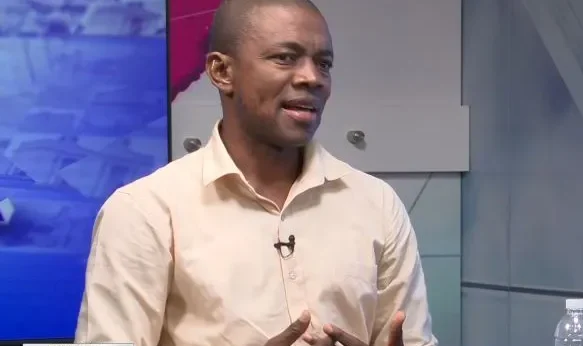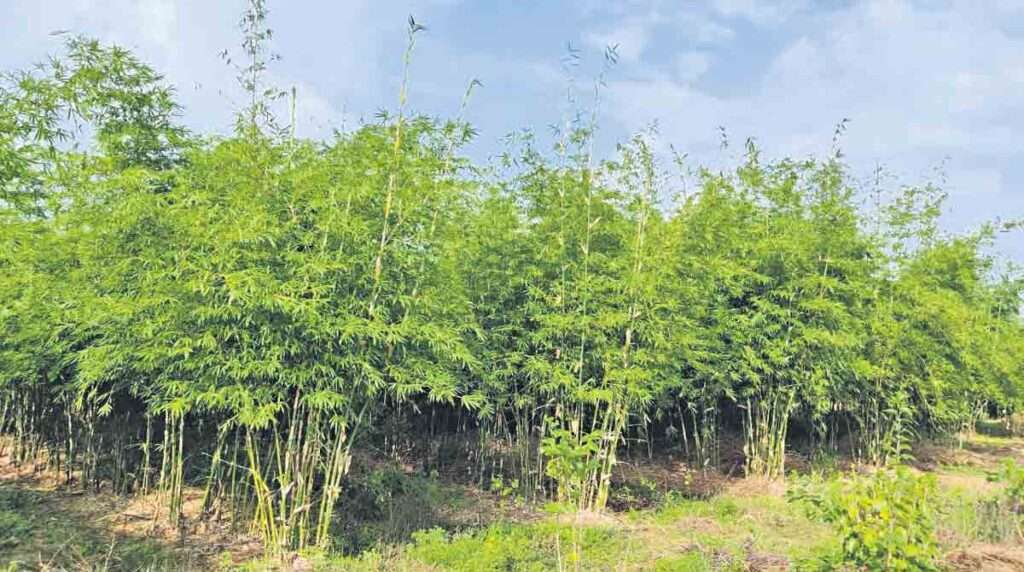Fuseini Donkor, former District Chief Executive for Sekyere Afram Plains, has disclosed that the government is set to launch a project aimed at restoring lands destroyed by illegal mining through the cultivation of bamboo.
He explained that former President John Mahama initiated discussions with international partners to support this reclamation effort.
As a result of these collaborations, some foreign partners have already begun planting bamboo in various parts of the country as part of the broader strategy to rehabilitate degraded lands and restore the environment.
“When you go to Atebubu and Bantama, these foreigners have planted about 15 thousand acres of bamboo. These trees within 5 years are able to grow over 8 meters”.
Fuseini Donkor
Mr. Donkor further revealed that before the project commenced, the foreign partners conducted a comprehensive feasibility study on the degraded lands at no cost to the government, even though the study was valued at thousands of dollars.
He emphasized that the initiative was not a recent development but rather the result of negotiations that began during the previous tenure of the NDC under former President John Mahama.
According to him, these discussions laid the foundation for securing the expertise and support of international partners to help reclaim lands destroyed by illegal mining activities.
“It was in 2016, during NDC’s previous term. But when the government changed, things didn’t go as planned. And they decided to plant and wait till the NDC is in power again.
“In 2022, the president pleaded with them to find trees they could plant on lands that are being destroyed by Galamsey practices”.
Fuseini Donkor
He further emphasized that the selected bamboo species for the project are not only highly productive but also resilient and difficult to destroy, making them an ideal choice for land reclamation.

He highlighted bamboo’s remarkable growth rate, noting that it is the fastest-growing plant in the world, with some species capable of reaching an astonishing 47.6 inches in just 24 hours.
Beyond its rapid growth, he pointed out the numerous benefits of bamboo, stating that it can serve as a sustainable building material, a source of food, and an important component of traditional medicine.
Additionally, bamboo plays a crucial role in air purification by absorbing carbon dioxide and releasing oxygen, further contributing to environmental restoration efforts.
Bamboo Project to Boost Biofuel
Furthermore, Fuseini Donkor elaborated that the specific type of bamboo selected for the reclamation project is not only effective for restoring degraded lands but also holds significant economic potential.
He revealed that this particular species can be utilized for ethanol production, providing an opportunity for Ghana to explore alternative energy sources.
According to him, harnessing bamboo for ethanol could contribute to the country’s renewable energy sector, reduce dependence on fossil fuels, and create new economic opportunities for local communities through sustainable biofuel production.

“They have brought us a better type of bamboo. The research shows these have very thick masses. It is not like the normal bamboo with bigger holes inside. The most amazing part of it is that it can be used for ethanol”.
Fuseini Donkor
Fuseini Donkor revealed that former President John Mahama has set an ambitious target of reclaiming one million acres of degraded land across the country through the bamboo plantation initiative.
He emphasized that this large-scale project is designed to restore vast areas affected by illegal mining and deforestation, helping to rejuvenate Ghana’s environment and promote sustainable land use.
The former DCE for Sekyere Afram Plains further announced that the Ashanti Region, particularly the Sekyere Afram Plains, will be one of the biggest beneficiaries of the initiative.
He explained that the region has been heavily impacted by land degradation, and the project will not only aid in environmental restoration but also create economic opportunities for local communities through bamboo cultivation and its various industrial applications.





















